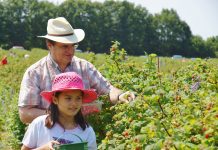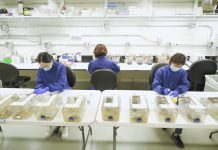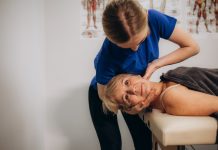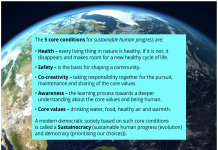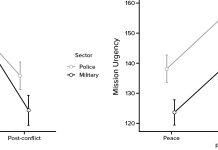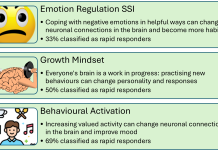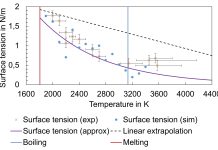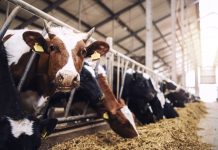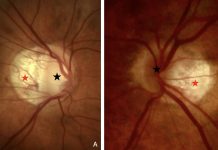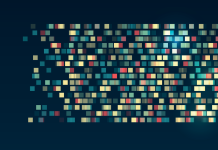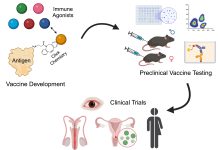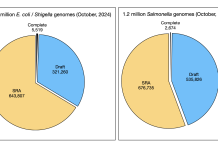Open Access Government produces compelling and informative news, publications, eBooks, and academic research articles for the public and private sector looking at health, diseases & conditions, workplace, research & innovation, digital transformation, government policy, environment, agriculture, energy, transport and more.
Home 2024
Archives
Berry production in Alberta: Accessing the market through agritourism
Aleksandra Tymczak studies the berry industry – an expanding industry in Alberta’s agricultural system. Here, she highlights the growing agritourism industry in relation to the opportunities presented to berry producers.
ML tools and systems models for WEFE nexus policy formulation and impact assessment
Experts from IHE Delft Institute for Water Education and Eurecat, Centre Tecnològic de Catalunya, guide us through the use of machine learning tools and systems models to inform WEFE nexus policy formulation and impact assessment.
MMPC-live: Accessible resources for phenotyping of live mouse models of diabetes and obesity
Professor Carol F. Elias, from the University of Michigan’s Department of Molecular & Integrative Physiology, discusses key research opportunities enabled by the NIDDK Mouse Metabolic Phenotyping Center in live models – MMPC-Live.
Joint manipulation, a hands-on therapeutic technique
Rob Sillevis from the Marieb College of Health and Human Services explores joint manipulation, a hands-on therapeutic technique designed to relieve pain, improve mobility, restore joint function, and enhance patient functionality.
Rethinking schools: How the philosophy of education holds the key to real change
Stephanie Schneider, an Associate Professor at the State University of New York at Old Westbury, discusses the importance of examining fundamental philosophical questions regarding the purpose of education and the values it should promote.
Our sustainable human development as a co-operative society
Jean-Paul Close is the Founder of STIR Foundation, which stands for Sustainocracy, Transformation, Indexation, and Research. Here, he shares how this organization works to develop local holistic solutions to global problems using a sustainocratic ideology.
Forging unity: Interagency collaboration in hybrid warfare
Jostein Mattingsdal explores leadership’s critical role in maximizing interagency collaboration’s effectiveness in hybrid warfare scenarios.
Filicide: The search for explanations
Thea Brown, Professor Emeritus in the Department of Social Work at Monash University, examines the development of research aimed at understanding filicide.
Early intervention for eating disorders
Tracey Wade, Matthew Flinders Distinguished Professor, provides an insightful examination of the significance of brief early interventions in the treatment of eating disorders.
A mathematical mindset approach to student learning
Jo Boaler, Nomellini and Olivier Professor in the Graduate School of Education (Mathematics) at Stanford University, explores a mathematical mindset approach to student learning.
Understanding high-temperature material properties
Prof Dr-Ing. Jörg Volpp, Associate Professor from University West, Trollhättan, Sweden, states that understanding metal surface tension at high temperatures will increase process understanding to benefit European Union metal processing and manufacturing industries.
Suicidal thoughts and actions: We need a new model
Konrad Michel, MD, Psychiatrist from the University of Bern, Switzerland, discusses the clinical approach to suicidal patients, providing a new look at a human phenomenon.
The national animal nutrition program: Digital – editable – perennial – accessible
The National Animal Nutrition Program (NANP) aims to enhance animal nutrition and feeding management while actively addressing concerns shared by livestock producers, environmentalists, and policymakers both nationally and globally. Here, they share insights about their work.
Spotting peripapillary intra-choroidal cavitation using OCT
Adèle Ehongo explores the potential of optical coherence tomography for diagnosing peripapillary intra-choroidal cavitation in myopic eyes.
Predictive analytics in the era of big data
Jacob Zahavi, from The Coller School of Management at Tel Aviv University, discusses the components of predictive analytics (PA) and the increasing complexity of PA problems in the world of Big Data.
Advancing vaccine development for chlamydia
Genital Chlamydia trachomatis infection is a significant public health burden; Professor of Pediatrics and Microbiology and Immunology, Toni Darville, discusses the potential efficacy of CPAF-adjuvanted vaccines in mitigating the spread and impact of the infection.
Human history: Handshaking horrors explained
Penelope J. Corfield, from Royal Holloway, University of London, offers an intriguing examination of the perils of shaking hands in human history.
The future of personalised cardiovascular disease detection and monitoring
Professor Allan Lawrie from Imperial College London, discusses the future of personalised cardiovascular disease detection and monitoring, including comment on wearable technology and AI.
Historians, archives, and the stories we create
Learning about history through archives can help historians expand the way they acquire and interpret information. Cecilia Morgan, from the University of Toronto, discusses how archives have influenced her own research.
E. coli genomes, big data, and messy biology
Here, David Ussery from the Department of BioMedical Informatics, UAMS, details E. coli genome diversity, big data, and messy biology. New methods, we discover, allow for the comparison of millions of bacterial genomes in a few days and the confident assignment of taxonomic clusters.

